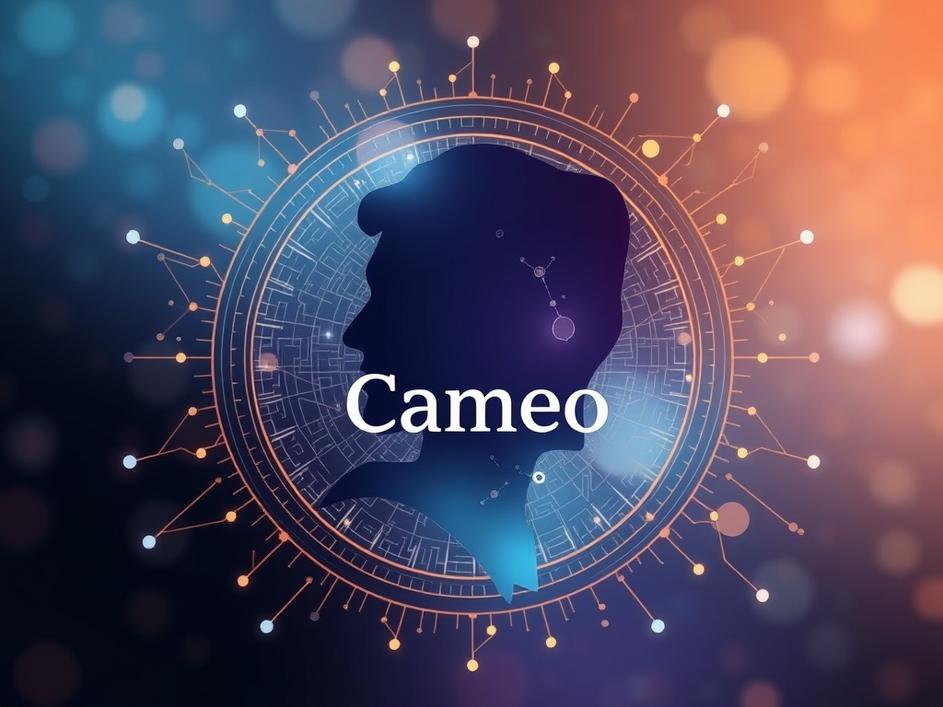


We are a digital agency helping businesses develop immersive, engaging, and user-focused web, app, and software solutions.
2310 Mira Vista Ave
Montrose, CA 91020
2500+ reviews based on client feedback

What's Included?
TogglePicture this: a super-smart computer program learns from tons of stuff online. It then creates something new. Sounds pretty cool, right? That’s the world of AI, and it’s moving fast. But what happens when that super-smart program, or the company behind it, starts using your brand’s name without asking? This isn’t some far-off sci-fi plot; it’s exactly what’s unfolding between the personalized video platform, Cameo, and the AI giant, OpenAI. The CEO of Cameo, Steven Galanis, recently spoke on CNBC’s “Money Movers,” shedding light on their lawsuit. And the biggest takeaway? It’s not about the amazing AI video tech, Sora. It’s about something much more fundamental: their name.
You might think, “Wait, isn’t OpenAI’s Sora AI the big news?” And you’d be right, it’s pretty mind-blowing. But Galanis made it super clear: Cameo’s issue isn’t with the technology itself. They’re not saying Sora shouldn’t exist or that AI is bad. Instead, their legal beef is purely about trademark. OpenAI allegedly used the “Cameo” name in ways that infringe on their brand. Think about it: when you hear “Cameo,” you probably think of celebrities sending you birthday messages or shout-outs. That’s the brand, the identity, the business they’ve built. For another company, even a huge AI one, to use that name without permission? That’s where the line gets crossed. It’s a classic case of protecting what you’ve built, even in this wild, new digital landscape.
This whole situation brings up a really important point about how AI models learn. These models soak up information from all over the internet. They read countless articles, look at millions of images, and basically ingest the entire digital world. But when does “learning” become “using” in a way that steps on someone else’s toes? If an AI model is trained on a massive dataset that includes branded material, or if its outputs or marketing materials then mimic or directly use existing brand names, who is responsible? This isn’t just a challenge for Cameo; it’s a huge question mark for every brand, artist, and creator out there. Our digital identities are becoming increasingly valuable, and the ways AI interacts with them are still very much uncharted territory. These early lawsuits are setting the groundwork for how we’ll navigate this future.
This isn’t just some corporate squabble; it has big implications for all of us. Imagine you’re a small business that’s spent years building up a unique brand identity, a recognizable name. Then, an AI company, perhaps unknowingly, starts using your name in a way that confuses customers or makes them think you’re connected. That could really hurt your business. This case, and others like it, are crucial for defining the rules of engagement between powerful AI technologies and established brands. It’s about making sure that as AI innovates, it doesn’t just run over the rights and hard work of others. It’s about balance, about respecting intellectual property even when the technology feels like it’s out of a sci-fi movie. Clear boundaries are needed so everyone can innovate and compete fairly.
From my perspective, this lawsuit highlights a critical tension: the unstoppable march of AI innovation versus the fundamental need to protect individual and corporate identities. It’s easy to get caught up in the wonder of AI, but we can’t forget that behind every algorithm are real people and real businesses. When a company spends years building a brand, that name becomes shorthand for their reputation, their promise, their entire identity. To have that used or mimicked without permission, regardless of the technology involved, undermines the very foundation of fair competition and intellectual property. These aren’t just legal battles; they’re ethical debates playing out in real time, shaping how we’ll coexist with increasingly powerful AI in the years to come. It’s a reminder that even in the most futuristic scenarios, basic principles of respect and ownership still apply.
So, while the world marvels at what AI like Sora can do, Cameo’s lawsuit brings us back to earth with a simple, yet powerful, message: a brand’s name is its sacred ground. This isn’t a fight against progress; it’s a fight for identity. As AI continues to evolve and integrate into every aspect of our lives, expect to see more of these kinds of legal challenges. They’re not obstacles to innovation, but rather necessary conversations that will help define the ethical and legal guardrails for a future where humans and hyper-intelligent algorithms co-create, coexist, and, hopefully, respect each other’s hard-earned place in the world.



Comments are closed